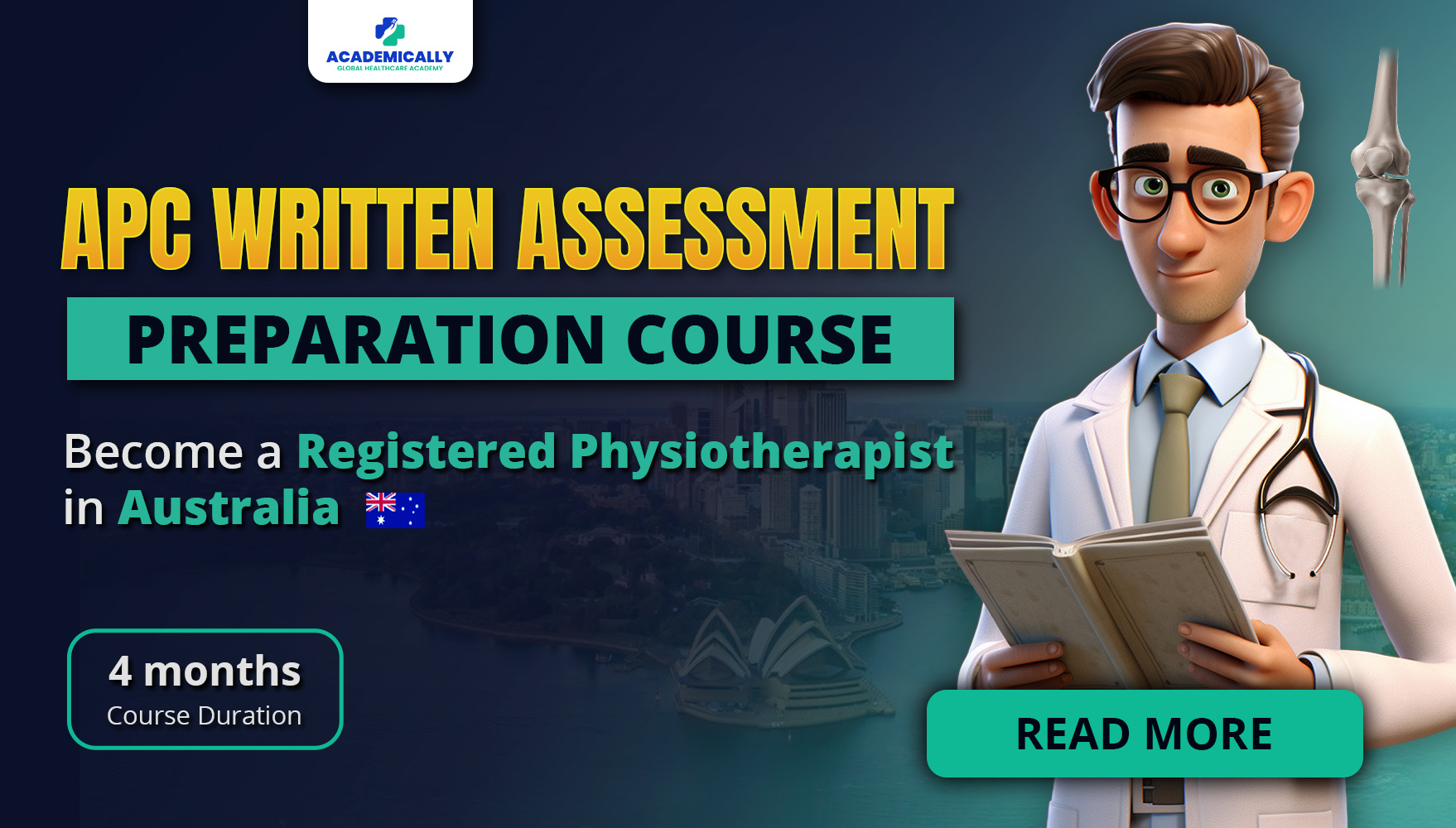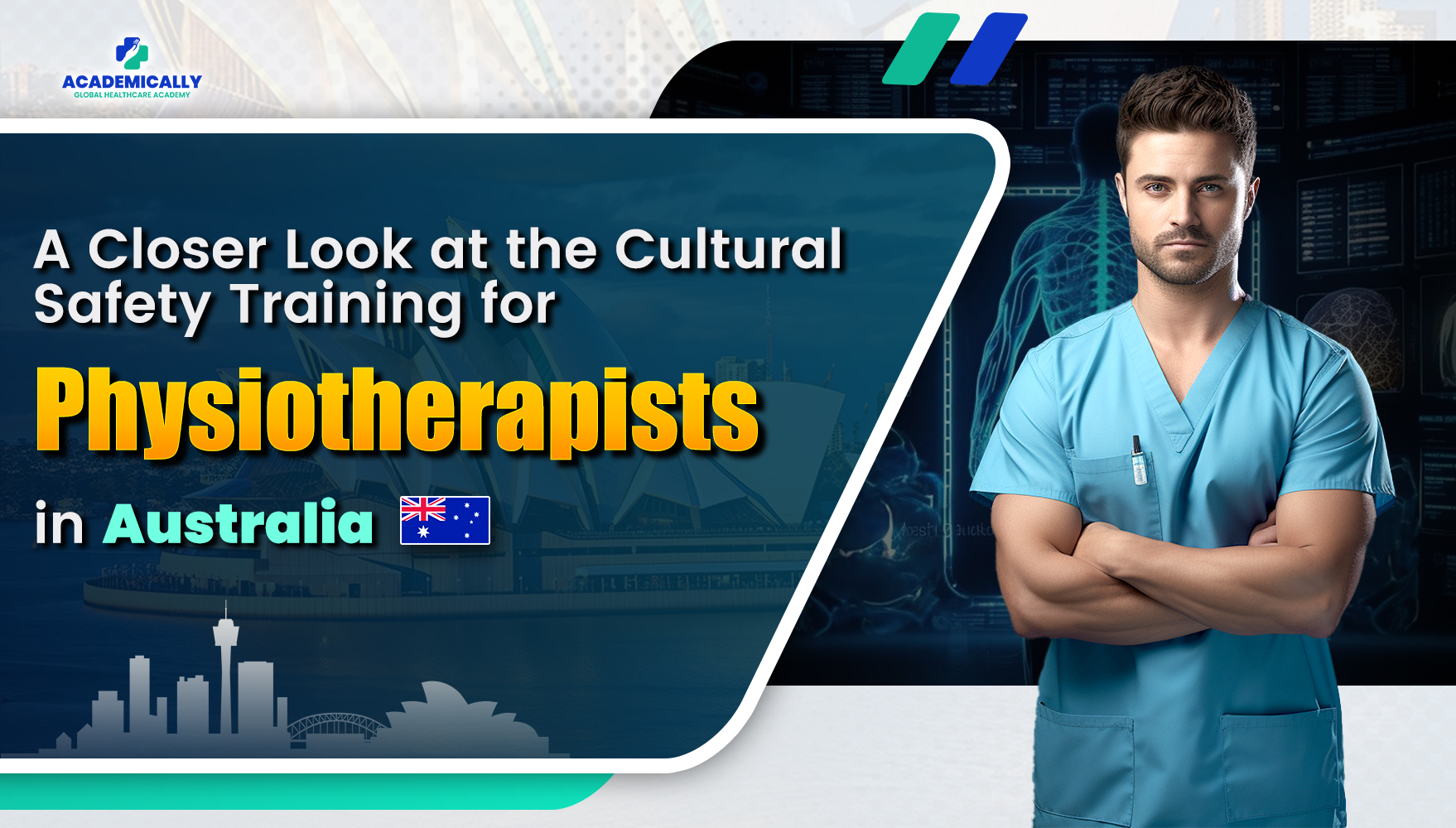What is Cultural Safety Training in Australia?
Cultural safety training is designed to educate healthcare professionals on the importance of respecting and acknowledging the cultural backgrounds of the country’s residents. It goes beyond cultural awareness and cultural competence, focusing on creating a safe environment for patients from all walks of life. The training encompasses a wide range of topics, including:
- Understanding cultural diversity
- Addressing power dynamics
- Effective communication
- Patient-centred care
Who is Required to Undergo the Council’s Cultural Safety Training?
All international physiotherapists (since 15 January 2020) who have chosen the following pathways are required to complete the Cultural Safety Training:
- Standard Assessment Pathway
- FLYR Pathway
- Equivalence of Qualification Pathway
The Australian Physiotherapy Council conducts the Cultural Safety Training.
Why Should the Cultural Safety Training Needs to be Completed?
In Australia, it's crucial that healthcare professionals deliver care that is culturally safe, especially when interacting with Aboriginal and Torres Strait Islander communities.
The Australian Health Practitioner Regulation Agency (AHPRA) has established that physiotherapists practising in Australia and Aotearoa New Zealand need to work effectively with individuals from cultures different from their own.
What is the Format of the Cultural Safety Training?
The Cultural Safety Training is an online program with six learning modules, taking about 5 hours to finish.
The program's content follows the five main aspects of the Aboriginal and Torres Strait Islander Curriculum Framework, making sure that all key areas are covered thoroughly. The content and duration is as follows:
When Should the Cultural Safety Training be Completed?
Application and Payment: When you apply for your Eligibility Assessment, you also pay for the Cultural Safety Training. This applies to both the Equivalence of Qualification and Standard Assessment pathways.
Access to Training: Once you apply and pay, you will receive an email from the University of Melbourne's Mobile Learning Unit with instructions to access the online Cultural Safety Training modules.
Assessment Processing: While you complete your training, the Council processes your application for the Eligibility Assessment. You can check their website for the expected processing times.
Passing the Exam: You need to complete all the training modules and pass the Cultural Safety Training exam with at least an 80% score.
Certificate of Completion: After passing the exam, you and the Council will receive a Certificate of Completion from the University of Melbourne, showing that you've finished the Cultural Safety Training.
Next Steps for Standard Assessment Candidates: If you're in the Standard Assessment pathway (including Express FLYR & FLYR Pathway), once you finish the training and your Eligibility Assessment is approved, you'll get an Interim Certificate. This lets you move on to the Written Assessment stage.
Next Steps for Equivalence of Qualification Candidates: If you're in the Equivalence of Qualification pathway after you complete the training and your qualification is found to be equivalent, you'll receive a Certificate of Substantial Equivalence of Qualification. This confirms your qualification's equivalence for physiotherapy in Australia.
What is the Cost of Cultural Safety Training?
The current fee required for the Cultural Safety Training is AUD 228. To stay updated, you can visit the official website of the Australian Physiotherapy Council.

What are the Benefits of Cultural Safety Training?
The Council's online Cultural Safety Training is developed with the University of Melbourne and offers several key benefits and learning outcomes for those who complete it:
Understanding Indigenous Culture: You'll learn about the history and present-day culture of Aboriginal and Torres Strait Islander peoples.
Defining Cultural Safety: You'll understand what cultural safety means and why these communities often feel unsafe in healthcare settings.
Providing Culturally Safe Services: You'll discover important information that physiotherapists should know to deliver culturally appropriate and safe care to Aboriginal and Torres Strait Islander peoples.
Dispelling Myths and Stereotypes: The training helps you identify and correct common misconceptions and stereotypes about Aboriginal and Torres Strait Islander peoples.
Recognising and Addressing Racism: You'll learn to spot racist behaviour and find ways to avoid it, ensuring it doesn't affect your interactions with Aboriginal and Torres Strait Islander peoples.
Applying Culturally Safe Practices: The course teaches you how to use culturally safe approaches in various physiotherapy clinical settings.
Why is Cultural Safety Training Important for Overseas-Trained Physiotherapists?
For overseas-trained physiotherapists seeking registration to practise in Australia, cultural safety training is crucial for several reasons:
Regulatory Requirements: The Australian Health Practitioner Regulation Agency (AHPRA) and other relevant bodies may require cultural safety training as part of the registration process. Understanding the local cultural context is key to gaining approval to practise.
Patient Trust and Rapport: Establishing trust with patients is essential for effective treatment. Cultural safety training helps physiotherapists create a welcoming environment where patients feel heard and respected.
Reducing Health Disparities: Acknowledging and addressing cultural differences can help reduce disparities in healthcare outcomes, ensuring that all patients receive fair and equal treatment.
Conclusion
Cultural safety training is inevitable for providing high-quality healthcare in a diverse society like Australia. For overseas-trained physiotherapists, this training is not only a regulatory requirement but also a valuable tool for building successful patient relationships and ensuring equitable care. By embracing cultural safety, physiotherapists can contribute to a more inclusive and respectful healthcare system in Australia.
Fill up this form for a free one on one counselling session.




